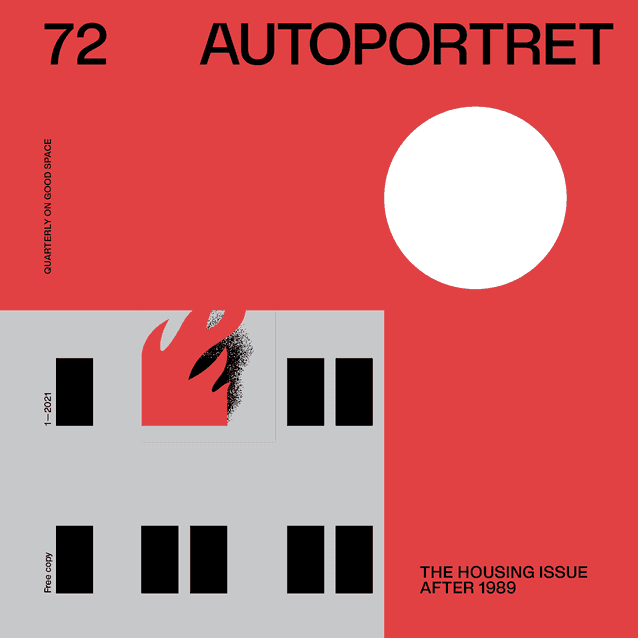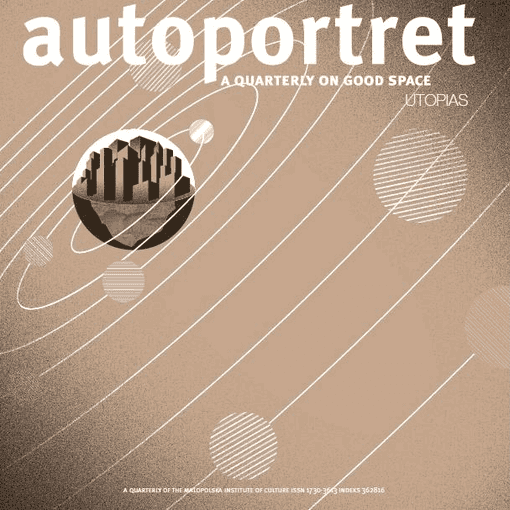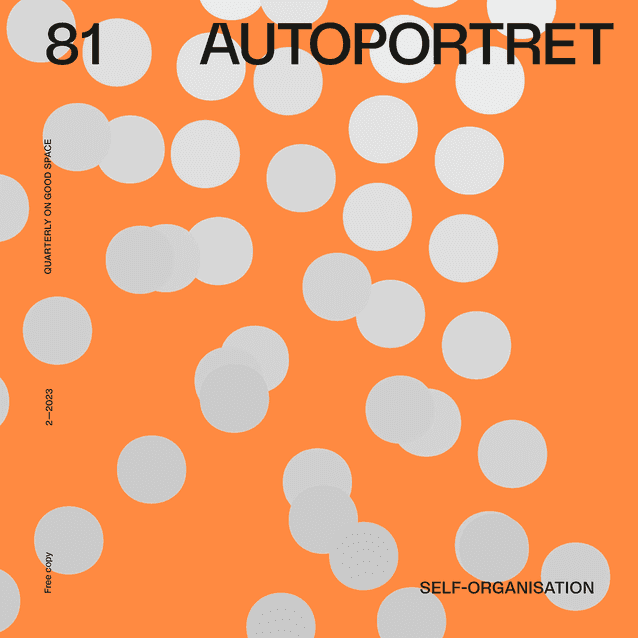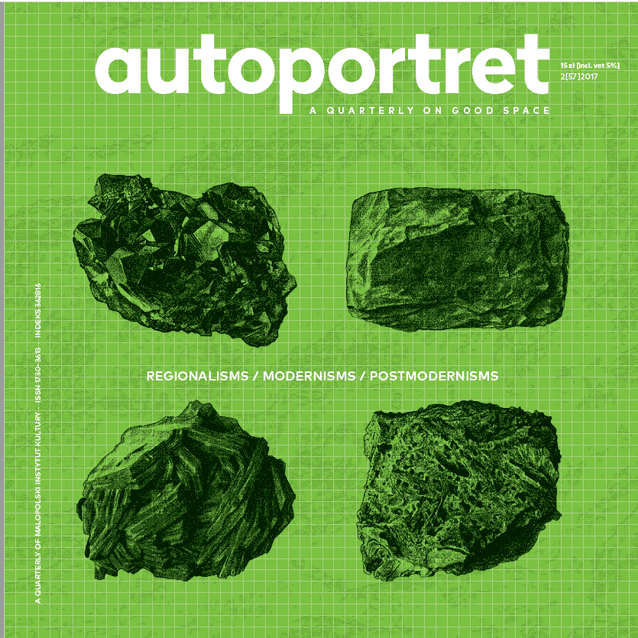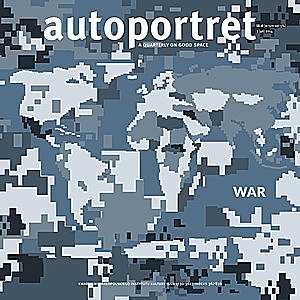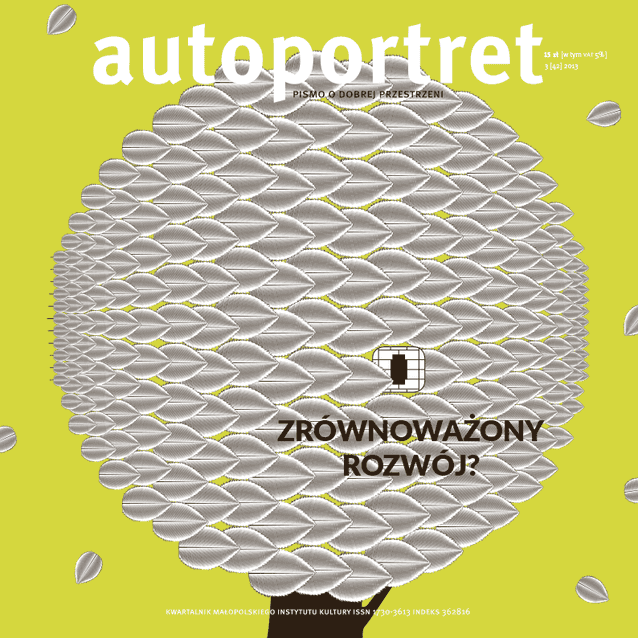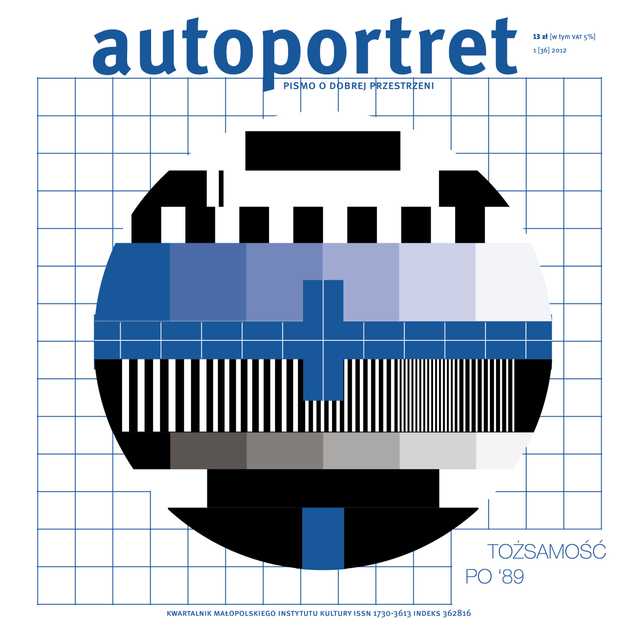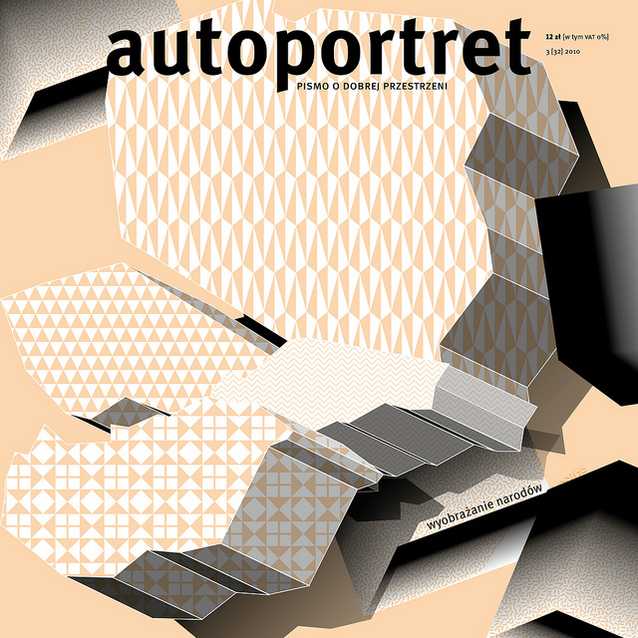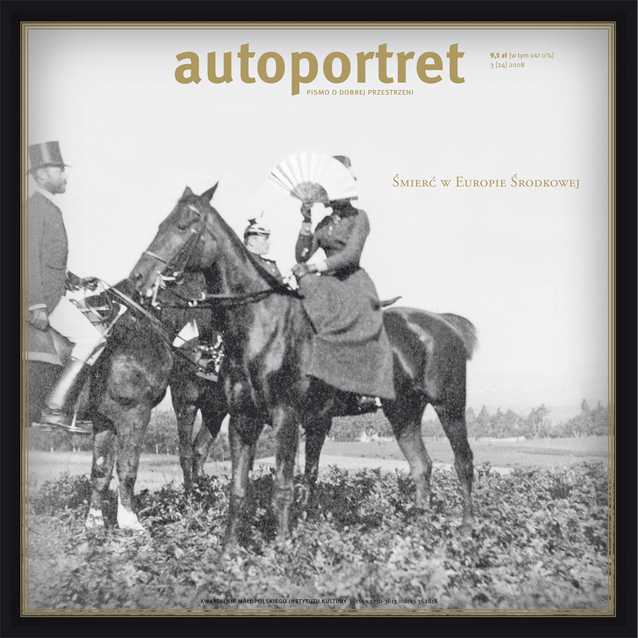Is a crisis of utopia and utopian thinking under way? If so, what are the reasons of this phenomenon, and if not, where can be the source of contemporary utopia? – these are the questions we asked Polish and foreign intellectuals: social scientists, philosophers, theoreticians and practitioners of architecture and urban planning, critics and art historians, and historians. Although the number of opinions presented here is finite, we could continue to collect them endlessly – there are as many utopias as thinkers. We hope that the multitude of opinions gathered below will be a departure point to understand modernity and inspiration for attempts at planning future.
Anthony Vidler
The crisis of utopia/utopian thinking was brought about by the architects’ vision that utopia could be designed and planned. Utopia, architects thought from the 18th century to the late 1960s, could be brought about by architecture. The failure of this vision caused a decline and rejection of utopian thought in architecture in favor of a pragmatic view of professional practice and its role in the development of neo-liberal capitalist society. At its best utopian thought and design was critical of capitalism, sometimes rejecting the neo-liberal model of society altogether – even Thomas More envisaged a communitarian system. The fall of the Berlin Wall, the proclaimed death of communism and Marx, finished utopian thought very quickly. Perhaps one might say that utopian thought killed the possibility of utopian thought?
As for the present, Fredric Jameson has proposed that utopian thought whether in prose or design can offer alternatives in a time of lock-down and melt down. Perhaps this is true, but for this to happen, architects have to regain their sense of social responsibility, and their political sanity, vote for a world ruled by communitarian and socialist ethics and practices, and not for a world ruled by the myth that the next technological discovery will provide a solution. In William Morris’s “News from Nowhere” the society is served by technology that stays well in the background; technology ruled by community and not by investment and profit.
New York, 29 April 20111
Anthony Vidler – Professor and Dean of Irwin S. Chanin School of Architecture at The Cooper Union in New York, the author of: Warped Space: Art, Architecture, and Anxiety in Modern Culture (2002) and Histories of the Immediate Present: Inventing Architectural Modernism (2008).
Hal Foster
The sheer difficulty of the present − in sociopolitical, economic, and ecological terms − makes utopian thought more urgent, more real, not less. As the students of ‘68 said in Paris: “soyons realistes, demandons l’impossible.”
30 April 2011
Hal Foster − b. 1955, Professor of Art and Archaeology at Princeton University, specializing in modern art and architecture history, published among others: The Return of the Real (1996), edited a seminal collection of essays on postmodernism, The Anti-Aesthetic: Essays on Postmodern Culture (1983).
Tadeusz Sławek
Utopia gives thinking a particular emphasis. By looking closely at everyday circumstances, at the disappointment evoked by existing reality as opposed to what it might be, utopia directs thinking towards the future which could eradicate those shortcomings and deficiencies. However, what is the most valuable in the utopian diacritic of thinking is the conviction that its strength is a profoundly critical reflection on the present state of things. Utopia does not intend to set an aim by means of the model reality it describes; if this were the case, it would soon turn into a dangerous instrument of ideological manipulation (examples may easily be pointed out). The utopian way of thinking is, first and foremost, a way that is critical of the world which is either pleased with itself or convinced that it has reached everything that was achievable in a given situation. Utopia is, then, a kind of unique dialect, a peculiar articulation of thought: we understand what utopia refers to (i.e. the imperfection of our means to organise the world) but at the same time our understanding contains an element of warning (against accepting the described model of the future as the ideal and the only binding one). What a utopia formulates is not a programme for a readymade ‘so it must be’ future but a critical assessment of the situation (‘so it should not be’) which opens a broad horizon for the future. Utopian thinking is then a form of a never fulfilled prophecy (if it did become fulfilled, it would lose the power of hope), a never realised future (should it be realised, it would cease to be future and would become another highly imperfect present).
This line of thinking, which is characteristic for utopia, makes politicians distrustful and reluctant to it. It is, after all, contrary to two fundamental postulates of their activity: to weaken the role of critical reflection on the state of things and to convince all of the finite pragmatic nature of politics. To those in power, being critical of the state of things must inherently involve being wary and conservative; if one goes too far, the foundations of the political party structure are threatened. Opposition in turn subjects the reality organised by the current authorities to criticism that is based not so much on a substantive dispute but on the very fact that it is a reality of someone else’s power rather than their own. In both cases criticism loses its solid, creative base. Narrowly understood, pragmatism of power, whose main aim is to keep it, will desperately strive to ward off all sorts of visionary, projective thinking in politics. This kind of thinking assumes that politics is a spiritual ‘project’, a direction of activities, movement towards an unrealisable dream of perfection, a never-to-be-fulfilled promise. The world in which the word ‘promise’ has lost its spiritual dimension and has become merely a bargaining card in the election play does not favour utopia.
9 May 2011
Tadeusz Sławek, b. 1946, is a poet, translator and essay writer. He is a professor of English and American literature, and the head of the Department of Comparative Literature at the University of Silesia in Katowice.
Hayden White
Yes, there is a crisis of utopia/utopian thinking.
This is because utopia is, as Fredric Jameson has argued, a literary genre which projects an imaginary resolution on conflicts caused by the coincidence of two or more different modes or production and the social relations engendered by them at a particular time and place in history.
Thomas More’s Utopia, the paradigm of utopian thinking in the modern West, remained important for as long as the older feudal-agrarian system retained some authority in the capitalist-urban world emerging during his time. Now, with the last vestiges of the Old Regime of pre-capitalist times little more than a vague memory in the West, the kind of utopia envisioned by More has lost whatever relevance it enjoyed up to World War I.
The utopias of the future will be built upon the conflict between advanced capitalism and whatever remains of the older nation-state which was an incarnation of advanced capitalism’s earlier political face. Globalism creates a crisis especially for law within the limits of the nation-state alone. With the demise of the nationstate as anything other than an expression of multinational corporate power, the demise of the authority of law itself must follow; because the nation-state was the last bastion of legality itself.
Advanced capitalism presupposes the subordination of every legal system to the imperatives of profiteering. The utopia of the future will be based on a nostalgia for the rule of law considered as superior to the state and the corporation. Nihilism is the reality of the absence of a rule of law that might be something other than an expression of current financial practice.
First, divine law goes. Then natural law goes. Then positive law goes. What will be left? Utopia as the memory of the possibility of legality.
15 May 2011
Hayden White is a historian and theorist of historiography, professor emeritus of the University of California, Santa Cruz and Stanford University. His works include Metahistory: The Historical Imagination in Nineteenth-Century Europe (1973).
Marc Augé
Philosopher Jean-François Lyotard was the first to refer to ‘the end of grand narratives’, those collective visions of the future that were so characteristic for the 19th century, whose failure was sanctioned by the 20th century totalitarianisms. The grand liberal narrative has also been struggling with obstacles, and we are not at all certain whether ‘the end of history’ described by Fukuyama (expansion of free market and representative democracy all over the world) is not an illusion: there are totalitarian regimes which adopt to the market economy extremely well, while the gap between the richest among the rich and the poorest among the poor continues to deepen both in developed and in developing and backward countries.
The paradox consists in the fact that the development of science is continuous, while the gap between those who have access to education and those whose access to it is limited is also deepening. The only utopia that may be formulated and realised is the utopia of education, the only one that promises true equality. It is a utopia because we are not going in that direction but we can imagine the conditions for it to be realised, hoping that it will eventually become a source of prosperity. The development of the media, such as the Internet, should not be mistaken for that utopia. It will never play a role in that area if it is not accompanied by extensive educational programmes that will teach how not to confuse aims with means, and knowledge with consumption.
Utopia today should focus on the individual and reach beyond the traditional opposition of freedom and real freedom.
24 May 2011
Marc Augé, b. 1935, is a French ethnologist and cultural anthropologist, professor at the École des hautes études en sciences sociales in Paris. He put forward the notion of the non-place. His works include Non-Places: Introduction to an Anthropology of Supermodernity, and Génie du paganisme [The Spirit of Paganism].
Martin Jay
Utopia is a concept that is always in crisis. It is motivated by an urgent feeling that the status quo, however it may be defined, cannot be allowed to continue. It rejects mere reforms or gradual improvements and posits the possibility of a radical alternative that will address root problems and provide fundamental solutions. It takes seriously the right to realize the desires, however outlandish, that the present order thwarts. And yet, at the same time, it is haunted by a fear that it lacks the means to bring about the imagined alternative, and by the realization that the transition to a redeemed world is virtually impossible to effect, at least by human efforts. The dual sense of utopia as a not-yet-existing place of perfection and a naïve fantasy that can never be realized prevents the concept from ever shedding its sense of permanent crisis.
Added to the perennial crisis of utopia as a generic concept is the historical lessons we have learned from attempts to force its realization. After the horrors of the twentieth century, it is impossible not to adopt an immediately ironic, even cynical stance towards it. “No experiments” was the understandable slogan adopted by many in the wake of the defeat or exhaustion of totalitarian utopias. The line between utopia and dystopia, history has taught us, is very porous and no one can be very confident that good intentions won’t produce nightmare outcomes. As a result, we have learned to be very cautious about embracing what the American historian Jay Winter has called “major utopias” and willing to accept only “minor” ones as plausible repositories of the desire for meaningful change. An excellent example, as another American historian Samuel Moyn has recently shown, is the international campaign to safeguard “human rights,” into which a lot of the utopian energies of earlier movements have been directed. Rather than an imagined form of perfect life, they function as a bulwark against the further impairment of our precarious lives. Although not sufficient as a politics, they are a necessary element in any politics that resists efforts to impose on us dystopias masking as utopias. Insofar as even the most benign version of a major utopia threatens to snuff out the endless struggle of competing values, aspirations and interests that is the lifeblood of healthy politics, it is better to confine it to the no-place of our dreams.
It would, of course, be a folly to abandon entirely the exercise of our utopian imaginations, however much we have learned about the risks of trying to realize them. The crisis of utopia must be understood as a permanent state of emergency. For, to paraphrase with some license the brilliantly ambiguous title of Goya’s famous etching, El sueño de la razón produce monstruos, the sleep of the utopian imaginary produces monsters.
27 May 2011
Martin Jay is a professor of history at the University of California, Berkeley. His research interests revolve around intellectual history; in his academic practice he refers to the achievements of the Frankfurt School and to cultural research. His works include Songs of Experience: Modern American and European Variations on a Universal Theme (2004) i amerykańskich wariacji na uniwersalny temat (2008).
Zygmunt Bauman
No crisis… Imagining a better life than the existing one, a life that does not yet exist but one that could and should exist – the eternal source of ‘utopian thinking’ that never runs dry – is as rich, and possibly even richer than at the time of Sir Thomas More who coined the name ‘utopia’ for it. Yet the content of these ideas has radically changed, and the hopes that they evoke and efforts that they stimulate have moved into an altogether different sphere.
In order to coin the name, and particularly to usefully render the incurably dualistic nature of a dream (‘it does not exist’ but ‘one would wish it did’), More used ancient Greek (after all, the Greek prefix ‘u’, which denies the existence of the thing that it precedes, and ‘eu’, which gives the thing a positive value, are pronounced in the same way in English), and chose a place to be the subject of dreams: a seat of a society, a remote city ‘far, far away’ where the living conditions are radically different from those in everyday experience and are much better suited to human desires than those experienced in daily life: the conditions in which all residents are satisfied with the world in which they live because nobody suffers any injustice and everyone has been allotted a proper role to perform, so everyone likes doing what they were appointed to do by the wise lawgiver. More’s choice harmonised with the ambitions of the forthcoming modernity: namely, with the intention to alter the existing world into one that would be friendlier and safer to people, and more hospitable to mankind; one in which the vagaries of fortune would be replaced with a carefully and prudently planned lucid and understandable system of human relations, rights and obligations. These ambitions were founded on the conviction that a good life was only possible in a good society, and that, if the aim of the intended transformation of the world was human happiness, then it was to be initiated in architect studios, planning a society that would be free from their all-too-well-known vices and afflictions: in short, that whims of nature, indifferent to human needs and dreams, ought to be replaced by order established by Reason. The order should be designed and approved by Reason and instituted by Reason’s plenipotentiaries – hence it should be perfect, or, in other words, one in which any further change would only be a change for the worse.
What has changed in the history of utopia and what is (mistakenly) considered to be its ‘crisis’ is the shifting of expectations and ambitions for a better life from a seat of the society to a place set aside from the society by the bearers of the utopia for themselves (and perhaps their near and dear ones); a place appropriated, adapted and secured by them from the vagaries of fate. The dream is not of a ‘perfect society’ (few believe nowadays in the feasibility of such a society, and virtually no one promises that it can be reached through Reason) but of one’s own comfortable trouble-free and pleasant niche. Like so many inherent aspects of human life, utopia has undergone privatisation… It is in keeping with the replacement of integrative ambitions of early modernity with the individualising tendency of its present phase; today, as Ulrich Beck aptly put it, individuals are expected to solve (for their own benefit, and at most – for the benefit of their near and dear ones) socially generated problems, by means of individual wit and cunning, individual resources and individually accessible means of action…
Personally, I associate this far-reaching transformation in the nature of utopia with the change of the most common, most ardently advocated and most frequently adopted attitude to life (not without intensive cooperation of consumer markets…): from the gardener’s posture to that of the hunter (I wrote about it extensively in the book Liquid Times: Living in an Age of Uncertainty published by Polity Press in 2007). While the gardener expects the carefully tended and lovingly cultivated garden to bear fruit, and takes onto himself co-responsibility for the permanence and beauty of the garden order, the hunter is concerned with the abundance of game during the next hunting trip, and does not worry about the wellbeing of the forest – and certainly refuses to take responsibility for its permanence. Moreover, while the ‘gardener’s ‘ utopia offers a prospect of a perfect order that crowns long and painstaking effort, the ‘hunter’s’ utopia is a dream of a never-ending series of hunting trips, hunting adventure and excitement…
29 May 2011
Zygmunt Bauman, b. 1925, is a philosopher, sociologist and essay writer. Professor at the University of
Leeds, he is one of the creators of the concept of liquid/late modernity. His works include Modernity and the Holocaust, Legislators and Interpreters, Socialism: the Active Utopia and Kultura w płynnej nowoczesności [Culture in liquid modernity].
Panayotis Tournikiotis
Utopia has always been a tool for social criticism, raising from old and suffering cities and societies to address the prospect of an ideal future to be established in the ideal city. Cultural or collectivist, the ideal society and the ideal city were written in books and exposed in Museums, to begin with Thomas More’s Utopia and Constant’s New Babylon. Utopian discourse was the sign of the radical thinking of people who could not fit the rule of real life and were indirectly willing to make this life change. Is there any crisis of utopian thinking nowadays? My answer is yes and no!
There is an inflation of utopian simulacrum, an omnipresence, a virtual plethora. Utopia is everywhere! You don’t have to close your eyes and imagine the new utopian worlds, somewhere in the south Pacific, Eden or elsewhere. You don’t have to think, to meditate, to study. Utopia is all present, moving and clinking around you, monitoring past and future life throughout, on the city walls, TV and laptop screens, and movies. Utopian gadgetry has occupied all of your real life and has changed it. You are actually living in the utopian world of grandpas!
At the same time, there is a deep crisis of utopian thinking in the historical meaning of this word. There is also a lack of critical thinking and social prospective. The promised end of capitalism has ended to a universal liberalism commanding a radically new social critique, breaking down with 19th and 20th century thinking. There is no issue in reproducing the sound critique of the same grandpas to change retroactively this world. We have to begin from scratch, liberating mind from all kind of established thinking, to rethink man and society and reinvent the means of critical understanding.
In fact, there is no more Utopia, there is no unknown land, no legendary fictional location synonymous with any earthly paradise. We virtually know every piece of land on this world, every topos, but we do not really know our world. Utopia nowadays is reenacting cogito and facing the world we live to activate direct change.
Athens, 4 June 2011
Panayotis Tournikiotis is an architectural historian, assistant professor at the Faculty of Architecture at the National Technical University in Athens. He has written The Historiography of Modern Architecture (2001).
Jean-Louis Cohen
The present crisis of utopia has many origins, from the objective ones such as the collapse of the socialist ideal, even in the democratic forms it seemed sometimes to be able to embody, to the subjective ones such as the emergence of the rather sweeping discourse of postmodernism, and the widespread doubt it has generated about the possibility of changing the world.
Yet some utopian patterns seem to be emerging at the beginning Third Millennium in the realm of architecture, at the intersection of disciplines, and in the response to material and ecological challenges. I see one example in the sphere of material production, the development of new building materials such as ultrahigh performance concrete derives from an encounter between scientists, contractors and designers. Based on nanotechnologies, it announces a new approach to infrastructure design, in which concrete’s strength and its precision of production become comparable to the ones of steel. The promise of a more refined and streamlined building industry combining laboratory findings with the use of local resources breaks with the serial, repetitive, model of heavy industry that has led to the discredit of modernist city-planning and architecture, as it allows for creative form-making grounded in scientific discoveries.
Besides these new frontiers of research and design, the technocratic model of decision-making and of design in the fields of urbanism and housing is challenged by strategies based on a careful, empathetic study of the existing geographic, and social conditions and of the specific expectations of the citizens and the inhabitants. Works such as the buildings of Rural Studio in Alabama, or Alexandre Chemetoff and Patrick Bouchain, in France, come to mind, with their emphasis on the clarity of the process and on affordability, without, however, neglecting the aesthetic quality of the structures produced. This attention to what is “already there” brings to mind the position of the early 20th century visionary Patrick Geddes, who differentiated between in his Cities in Evolution what he saw as the “Utopia” of the garden cities and new towns and a “Eutopia” that could result from a patient modification of existing cities. Today’s utopia lies precisely in such a patient analysis of the existing conditions and in their precise transformation, also thanks to innovative technologies.
15 June 2011
Jean-Louis Cohen is a French architect and architectural historian, professor at the Institute of Fine Arts at the New York University. He is a member of the Programme Council of Fondation Le Corbusier. He has co-authored the books Casablanca: Colonial Myths and Architectural Ventures (with M. Eleb, 2003), Mies van der Rohe (with M. Rosengarten, 1995), Scenes of the World to Come: European Architecture and the American Challenge 1893-1960 (with H. Damisch).
In reply to our invitation Wisława Szymborska proposed us reprinting a poem from her 1976 volume titled Wielka liczba [A Large Number]. The editors thank the Author for her consent.
Wisława Szymborska
Utopia
Island where all becomes clear.
Solid ground beneath your feet.
The only roads are those that offer access.
Bushes bend beneath the weight of proofs.
The Tree of Valid Supposition grows here
with branches disentangled since time immemorial.
The Tree of Understanding, dazzlingly straight and simple,
sprouts by the spring called Now I Get It.
The thicker the woods, the vaster the vista:
the Valley of Obviously.
If any doubts arise, the wind dispels them instantly.
Echoes stir unsummoned
and eagerly explain all the secrets of the worlds.
On the right a cave where Meaning lies.
On the left the Lake of Deep Conviction.
Truth breaks from the bottom and bobs to the surface.
Unshakable Confidence towers over the valley.
Its peak offers an excellent view of the Essence of Things.
For all its charms, the island is uninhabited,
and the faint footprints scattered on its beaches
turn without exception to the sea.
As if all you can do here is leave
and plunge, never to return, into the depths.
Into unfathomable life.
Wisława Szymborska, b. 1923, poet, essayist and literary critic, translator, columnist, winner of the Nobel Prize in literature (1996); author of dozen or so volumes of verse.
Translated by Stanisław Barańczak and Claire Cavanagh
Ben van Berkel
It is interesting to reflect on the reasons for why there is less utopian thinking today than there has been in the past. What is causing the ‘end of utopia’? It could be said that a crisis in utopian thinking comes about when there is no real crisis to instigate such thought in the first place. We are currently experiencing an economic crisis which – while it has resulted in devastating financial fallout on a worldwide scale – does not compare to the effects of a prolonged world war, or an unexpected natural disaster on a colossal scale. Such occurrences question and challenge the status quo of our planned, safe and rational societies and in so doing create a sense of urgency and the need to find solutions and systems in order to protect ourselves from such eventualities in the future. Utopian thinking is to some extent born out of the desire to protect ourselves, but as long as we do not feel sufficiently threatened, or have not experienced extensive devastation on a grand scale, such thinking will for the most part abate.
There is a difference between the holistic concept of utopia as referring to an ideal society – be that with a political, religious, economical or even ecological focus – and utopian thinking as a means of achieving progress; progress based on a mix of both hope and the desire for improvement to the human condition in general. These days utopian thinking is less focused on all-encompassing socio-politico-legal systems than on highly specific fields and areas of advanced research.
In medicine for instance the urge to invent is extremely pronounced and this stimulates experimentation and projective research and thinking. Science and technology are also progressing at an incredible speed, in ways both thinkable and ways almost unimaginable. Contrary to Nietzsche’s assertion that ‘we hear only those questions for which we are in a position to find answers’, it could be argued that it is in fact in the almost unimaginable that progress and true utopian thinking occurs; that in order to achieve perfection, we have to look beyond the seemingly obtainable, or the ‘thinkable’.
For example, research is being carried out into the ability of computers to read our thoughts and emotions, meaning that we will in effect communicate with and guide machines by thought or feelings alone. On the one hand such invention would advance robotics beyond what we currently find conceivable (a machine could in effect become your closest friend and emotional ally!), but on the other hand this progress will also stimulate the technological advancement of our society as a whole.
But whilst these predictions are based on real facts and the results of scientific research rather than ideology, without an ideological end goal and utopian thinking involved, such research would never have been undertaken in the first place. So we witness the development of a utopian thought model which moves from technology to psychology and back again and which results in organisational behaviour. It is this composite model that could change our environments in many ways and – of particular interest to me – includes our approach to and understanding of architecture and how it will operate in the future.
I believe that innovation truly occurs when we return to this particular understanding and approach to scientific research, of which we can find previous examples in history. Leonardo da Vinci fused the artistic and the rational, thereby creating new inventions, whilst Galileo’s combination of philosophy and scientific research resulted not only in numerous inventions but also in discoveries that played a very large part in the Scientific Revolution. The beauty and the ‘utopian’ in scientific research today is that it is returning to some degree to this model, to the bridging of two worlds; the subjective, artistic and creative and the purely objective approach to innovation in science.
6 June 2011
Ben van Berkel is a Dutch architect. He has set up the architect studio UNStudio in Amsterdam. His designs include Erasmusbrug in Rotterdam, Mercedes-Benz Welt in Stuttgart, Museum Het Valkhof in Nijmegen.
Léon Krier
The text we are publishing below has been submitted by Léon Krier as his contribution to our questionnaire, although it was written on a different occasion, i.e. his address on sustainable development and architecture delivered in Spain in 2010. Despite the fact that the article concerns slightly different issues, we decided to include it to the rest of the voices.
The tidal wave of ecological concerns which is now flooding the media world is merely the corollary for their being ignored for too long. The Club of Rome, The Global 2000 report to the President of the United States and foundational texts like Entropy by Jeremy Rifkin, have been in the public realm for some 40 years.
My own opinions, work and thinking have been profoundly marked by pioneers like Ivan Illich or Denis de Rougement, Nicholas Georgescu-Roegen. Equally the works of Jered Diamond, James Howard Kunstler, Rene Girard, mark the turning point in thinking about civilization, energy and violence. Al Gore points out the irony of public opinion despairing about problems it chose to ignore until yesterday. The idea that science and technology will take care of all possible problems of energy supply for an ever expanding world economy and why not for a triumph of democracy, are wearing thin. As there are no ready alternatives, old ideological ghosts are being resurrected in order to save the reigning belief-systems. It is already evident that we are here in the dynamism of excess following upon excess, but where can possibly be found the golden middle path?
In terms of ecology and civilization “sustainability” is in itself a misnomer. As the famous mathematician Georgescu-Roegen pointed out more than 40 years ago, the more population the planet has to nourrish now, the less it will be able to nourish in the future. In my opinion, the authentic traditional city is the only relatively sustainable settlement model. However, this by itself is no guaranty for respect of the conditions of nature, because all forms of human civilization are stressing the natural environment on which they feed. Whatever we do in the world reduces the stock of free energy available to humans in the future. We live on a finite stock of free energy on this planet and in the foreseeable future we cannot consider other planets to provide us with materials we have been robbing from distant continents in the last 500 years.The only free energy which all civilizations have explored so far is the solar energy but the hope that photovoltaic cells, hydrogen and wind-power are going to replace fossil fuel energy one day are an illusion which is quickly evaporating. Without freely available fossil fuel energy there will be no high tech industries nor probably, what is known as “modern architecture”. The biggest intellectual concept to grasp today is that technology is merely the logos of techniques. That technology is neither high nor low and that that differentiation has little to do with intelligence, wisdom, progress, ecology. What superficially looks like high may be extremely low in ecological terms and vice versa. We live now a capital moment because we begin collectively to realize that the idea of permanent economic growth, on which the idea of modernism and progress are built, cannot be sustained. How then to pay for our accumulated debt if there is no foreseeable economic growth beyond Peak-Oil or slave-labor. Those who pretend that human ingeniousness holds a solution ready to kick in when needed, won’t be able to lie to us and themselves much longer. Because however brave science has been in exploring the micro and macro scales, there is virtually no science of ecological civilization. How then are our representatives to take intelligent long term decisions when lacking reliable resource data? The questions which science have urgently to address and answer are … how many humans can live in given locations, regions, countries, continents, in given geo-climatic conditions, for how long, under what politcal economies and with what technical and biological inventaries? And beyond « what can be our moral, aesthetic, technical and technological value systems in conditions of limited free-energy resources?
When we ask these questions we butt against overwhelming ideologico-metaphysical walls. We realize that we peace-loving and caring human beings are citizens of voracious and extremely toxic empires. And yet our youth are no longer given the military education and training as were routine only a generation ago. Imperial violence has been delegated to professional bodies and hence there exists no collective consciousness of « empire » to speak of. Yet we all know that empires, which do not permanently rebuild their power base, will collapse under the pressure of other expanding entities. Our politicians are more and more pressed to take extremely urgent environmental decisions and we like to believe that such decisions are based on solid information whilst they generally result from hypotheses with little scientific or philosophic foundation. The same intellectual misery applies in regard to urban growth, building technology and transport. The return to traditional architecture and settlement patterns will, contrary to what I had hoped and argued for*, not come about by democratic choice but by fate, by overwhelming necessity. The sooner we prepare for it the more we will enjoy to live with what we are given.
We need a global environmental project to respond to global ecological problems. The proliferating so-called green-suburbs, green-skyscrapers, green-transport,- food,-fuel and green-everything are but ploys which may postpone Peak-Oil by a mere few days in the near future. For now they represent not merely ecological babytalk but pathetic diversions from the burning issues. The term “sustainable City” is a metaphysical ideal, a utopian fabulation. In reality there exist no generalizable, pragmatic models for such a city. There exist only partial visions. The traditional models in terms of building and planning are however more than vision. They represent not mere history and past but unrenouncable, reified experience. Beyond their objective geometric and physical characteristics they also represent the most commonly attractive forms human communities have been able to realize so far. Architecture and urbanism have therefore to opt for the widest possible experience rather than for short-lived experimentations.
For the time–being the grotesque abuse of the term “sustainable” erodes the word’s social and political potential and postpones the advent of eventual solutions.
Spain 2010/ 23 May 2011
Léon Krier is an architect, architectural theorist and urban planner who belongs to the neo-traditionalist
movement. He has developed the experimental city of Poundbury, an Urban extension to Dorchester in Cornwall. His works include Architecture: Choice or Fate (1998). twórca planu eksperymentalnego miasta Poundbury będącego rozbudową Dorchester w Kornwalii. Autor m.in. książki Architektura − wybór czy przeznaczenie (2001).
Immanuel Wallerstein
MARXISMS AS UTOPIAS
The text published below constitutes Part IV of an 1986 essay titled Marxisms as Utopias: Evolving Ideologies which has been published in “The American Journal of Sociology” (Vol. 91, No. 6, pp. 1295−1308). Professor Wallerstein has offered us this essay in reply to our questionnaire as he finds his standpoint expressed there as still valid and referring to the core problem of our inquiry.
What then do we conclude about the multiple utopias, the multiple Marx- isms, the multiple social sciences? First of all, that in this third era of utopias, of Marxisms, of social sciences, we cannot rely on the acquired wisdom of the second era. No doubt there is wisdom there, but we have to tear it into very small bits in order to reassemble it in forms that are usable. Not to do so is simply to fall further into the monumental culs-de-sac in which, as of the 1960s, both orthodox Marxism and scientific social science found themselves.
Second, we need to think directly about our utopias. Mannheim was absolutely right in his conclusion that if we dispense with utopias, we have dispensed with rational will. Furthermore, he was also right that an inefficacious utopia does not deserve to be called a utopia. But he probably misled us by counterposing ideology and utopia, as though they were in some sense alternatives.
Utopias are always ideological1. Here Engels (and Marx) was right, provided one remembers that they were wrong in the implicit utopia involved in believing that there could ever be an end to history, a world in which ideologies no longer existed. If we are to make progress, it seems to me we have not only to accept contradiction as the key to explain social reality but also to accept its enduring inescapability, a presumption alien to orthodox Marxism. Contradiction is the human condition. Our utopia has to be sought not in eliminating all contradiction but in eradicating the vulgar, brutal, unnecessary consequences of material inequality. This latter seems to me intrinsically a quite achievable objective.
It is in this sense that utopia is a process, always defining the better in a way that is critical of existing reality. Such a definition can, by its very nature, never be brought to fruition by some (a few) on behalf of others (the many). That can only be done by the many on behalf of themselves. If some believe this view to be utopian, it is, but in Mannheim’s sense of an agent of efficacious, rational transformation. However, neither a socially unattached intelligentsia nor a party, any party, can bring about this transformation-which is not to say, on the other hand, that they cannot play any role at all.
The task before us is precisely to place the activities of the intelligentsia (i.e., social science) and the activities of political organizations in a framework in which, in tension and tandem with each other, they illuminate the historical choices rather than presume to make them. In this situation, how different are the intellectual and the social tasks facing social science of the third era and the Marxism of the era of a thousand Marxisms? They seem to me similar and overlapping, albeit not identical. The political task is to reconstruct a strategy of change that in fact will work, in the sense of being utopian. Our present strategies have not really worked and threaten to lead us into a new historical system as inegalitarian and as little libertarian as the one out of which we are moving. The intellectual task is to create a methodology that will seize the unseizable process − in which A is never A, in which contradiction is intrinsic, in which the totality is smaller than the part, and in which interpretation is the objective. This too is utopian, but only such an intellectual utopia will make possible the political utopia. The two tasks are obverse and therefore inseparable.
Translations from Polish to English (Augé, Sławek, Bauman): Anna Mirosławska-Olszewska
